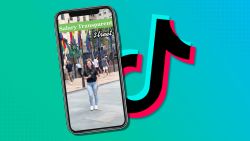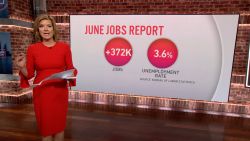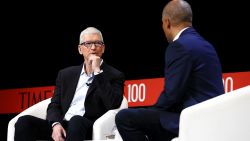We should all be doing more informational interviews.
More from Success
These meetings can help us figure out the next step in our career path, get the inside scoop on what it’s like to work at a particular company or learn more about an industry we’re contemplating breaking into.
“Informational interviews can be really good for your career and allow you to learn more…in a medium- to lowpressure way vs. an actual interview, which can be higher pressure,” said Mary Pharris, director of marketing and communications at Fairygodboss.
Who should you reach out to?
The key to a useful informational interview is finding the right person to meet with. You don’t want to waste anyone’s time, so make sure you’re meeting with someone who has the experience and knowledge you are looking for.
Start within your own network. Try your LinkedIn connections, college alumni, professional associations and even friends who might know someone who has the job you ultimately want, works at your dream company or is a leader in an industry you want to move into.
Just be sure that you are truly interested in learning more from the person you’re requesting time with and it’s not just some random career idea you thought you might be interested in.
“You need to be very cognizant people are spending political capital on your behalf to make these asks,” said Dorie Clark, author of “Entrepreneurial You.”
Don’t be scared to reach out to someone you have no established connections with either. But make sure you’re clear about why you picked that person to talk to and what you hope to get out of the meeting.
How to make the request
An email or LinkedIn message tends to be the best way to request an informational interview.
Be sure to provide a little background about yourself, your career goals and what you are looking to achieve with the meeting, suggested Michelle Armer, chief people officer at CareerBuilder.
You should also explain to the person why you chose to reach out to them. And whatever you do, don’t say, you want to pick their brain, experts agreed.
Be specific with your request. Set a time limit for the meeting (no more than an hour) and throw out a few dates to choose from. You can offer to buy them a cup coffee at a nearby shop or come to their office if that’s more convenient.
“You want to make it as easy possible for the person you are asking,” said Pharris.
What to ask
The key to getting the most out of these interviews is asking the right questions.
Do your research ahead of time to avoid asking questions you can easily find the answers to yourself (for instance: How big is the company?). That will allow for more pointed questions that will garner more useful answers.
If you aspire to climb to the role of the person you are meeting with, then ask about their experience: What motivates them? How did they get into the field? What do they like about it?
“Personalize the questions to the individual you are talking to,” said Katharine Brooks, Evans Family Executive Director of the Career Center at Vanderbilt University.
If you are looking to learn more about a company to see if it’s a potential fit, ask what the person likes about the company, work-life balance and the opportunities they’ve had.
“You can get a feel for the cultures of the company by asking questions like whether people are encouraged to learn, do they see the company as interested in growing and developing employees and if there is opportunity to move up,” said Brooks.
For people considering switching industries altogether, it’s helpful to ask how your current talents and experience could translate in the field and which new skills you should learn to be successful.
“Ask: ‘If you were in my position with my background looking to transfer into this area, what do you think would be the perceived weaknesses I need to overcome?’,’What specific steps would you be taking right now if you were in my shoes,?’” suggested Clark.
What not to ask
One question to avoid is asking for a job. Remember: An informational interview is not a job interview and is not the time to ask for a job.
“They are helping you develop a network to have a job, but they aren’t necessarily your job link,” said Brooks.
The follow up
Be sure to send a thank you email or card as well. And be detailed. Show yourgratitude and also reiterate one specific part or detail from the meeting that you enjoyed or found helpful.
If the meeting went well and the person seemed open to potentially helping you in the future, you can attach your resume with a simple request like: If you are comfortable, please feel free to pass along my resume to whom you see fit.
And don’t let the relationship die after the interview. Connect with them on LinkedIn if you aren’t already, and find ways to stay in touch.
During the interview, try to glean some personal tidbit about the person that you can also use to help follow up and stay connected in the future, suggested Clark. For instance, maybe they mention they are a big Yankees fan. Take note of that and then reach out if the team has a particularly good winning streak.

























